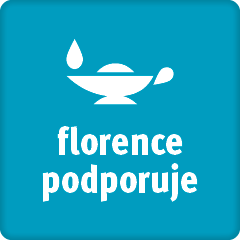


Číslo 5 / 2022
What does a pediatric dental hygienist do?
A pediatric dental hygienist is a specialized type of dental professional who works with children. They are trained to provide routine and preventative dental care for kids, including cleaning, sealants, fluoride treatments, and other services.
Pediatric dental hygienists must complete the same training as regular dental hygienists – they just focus on treating younger patients. This means they have to be knowledgeable about child development, behavior, and physiology in addition to standard dental procedures.
Responsibility
Pediatric dental hygienists have a wide range of responsibilities, which can include:
– explaining treatment procedures to children to ease their anxieties about visiting the dentist;
– preparing equipment for procedures, sterilizing instruments, and setting up appointments;
– cleaning teeth with specialized tools such as ultrasonic devices and hand probes;
– recording observations about a child’s dental health, including notes on any infections or other problems that may require attention;
– assisting dentists in treating patients by administering local anesthetics and other medications as needed;
– collecting dental samples for testing to detect signs of infection or disease;
– cleaning patients’ teeth using a variety of tools such as ultrasonic devices and hand probes;
– educating patients about proper dental care techniques, diet and nutrition, brushing and flossing habits, and regular dental appointments.
Skills
Pediatric dental hygienists need the following skills in order to be successful:
Communication skills: Pediatric dental hygienists communicate with children and parents throughout the treatment process. They explain procedures to children and parents and answer any questions they may have. They also explain treatment options to parents and work with them to develop a treatment plan for their child.
Empathy: Empathy is the ability to understand and share the feelings of others. Pediatric dental hygienists often work with children, who may be nervous about visiting the dentist. Having empathy for your patients can help you put them at ease and make them feel comfortable during their treatment.
Attention to detail: Pediatric dental hygienists must be able to notice small changes in their patients’ teeth and gums. They must be able to identify any potential issues and take action to prevent them from becoming larger problems. This requires a strong attention to detail, as well as the ability to read and interpret dental charts and other records.
Patience: Pediatric dental hygienists must have patience when working with children. Children may be nervous about visiting the dentist and may need time to warm up to the dental hygienist. It’s important for pediatric dental hygienists to be patient and understanding when working with children.
Knowledge of dental hygiene: Pediatric dental hygienists should have a thorough understanding of the dental hygiene process. This includes knowing how to properly clean teeth, gums and other dental surfaces. It’s important for pediatric dental hygienists to know how to properly clean children’s teeth because children’s teeth are smaller than adult teeth and have different surface areas. This means that pediatric dental hygienists need to know how to clean children’s teeth thoroughly without damaging them.
Slovníček
knowledgeable – znalý, erudovaný; dobře informovaný; zasvěcený
behavior – chování; jednání; reakce
to ease – zmírnit; ulevit, polevit; snížit; zpomalit; ulehčit
to set up an appointment – objednat (k lékaři); domluvit schůzku
probe – sonda; háček
to require – vyžadovat, žádat si, potřebovat, být zapotřebí
sample – vzorek; ukázka
flossing – čištění zubní nití
skill – dovednost, schopnost; technika
in order to – aby, za účelem
throughout – během celého …; po celou dobu
to explain – vysvětlit, vysvětlovat, objasnit; vyložit
to put at ease – uklidnit koho, uvolnit, navodit příjemnou atmosféru
issue – problém; záležitost, věc
chart – graf, diagram, schéma, tabulka
record – záznam, zápis; protokol, doklad; evidence
patience – trpělivost, strpení
to warm up – osmělit se; dostat se (do tempa), rozehřát se; rozcvičit se
understanding – chápavý, chápající; tolerantní; mající pochopení
thorough – důkladný, podrobný, detailní; pečlivý, svědomitý
properly – pořádně, řádně, svědomitě, náležitě, patřičně
surface – povrch, plocha; hladina
to damage – poškodit; způsobit škodu
Source: What Does a Pediatric Dental Hygienist Do? [online]. Available from: www.climbtheladder.com.
Další články v tomto čísle
- XXVIII. královéhradecké ošetřovatelské dny
- Vzdělávací dovednosti v oblasti zdravotní gramotnosti u sester pracujících se seniory
- Editorial
- Anděl mezi zdravotníky: Cenu Sympatie Florence získala lékárnice Gabriela Bendová
- EPUAP – České VI. sympozium, DEKUBITY – Sdílení zkušeností na mezinárodní úrovni
- Gastroskopie
- Děláme svou práci srdcem a úsměv máme při práci s dětmi v popisu práce
- Nadměrné zatížení pediatrických ordinací
- Úrazy u dětí
- Novodobá technológia – pomoc v self-monitoringu o deti s ochorením diabetes mellitus





















